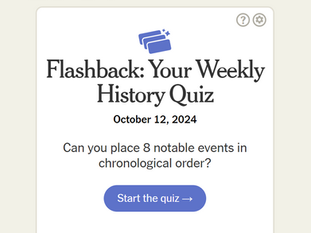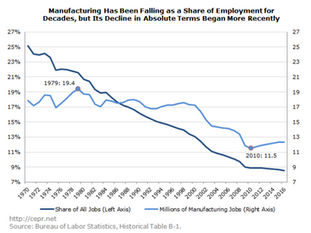
MATTHEW HAMMOND
Aspiring Social Studies Teacher,
former Antitrust Enforcer & Dad
The Northern Lights near Reykjavík, Iceland (Feb. 2023, MCHammond)

The last chapter of A New Culture of Learning (NCL) focuses on World of WarCraft (WoW), a massively multiplayer online game (or MMO), as an "almost perfect illustration[] of a new learning environment" that is at the heart of its new culture of
Last in a series of posts related to A New Culture of Learning (NCL) (ch. 9).
(references in parentheses are to NCL.)
learning. (p. 107) Despite the fact that many in education dismiss gaming as frivolous, NCL makes a pretty compelling argument that the groups formed in WoW are exemplars of collective learning by doing. While it is gaming, being a member of a guild on WoW and iteratively working with others achieve the groups goals seems like a very authentic activity, which engages guild members and engenders meaningful learning. (Now, we just need to figure out a way to use 529 funds to pay for your gaming rig and WoW subscription.) The aspects of collective learning present in WoW that NCL highlights fit very well into my notion of meaningful learning:
active, social (or collective) learning (p. 109)
iterative experimentation and testing of solutions and improvements (pp. 108, 112), which also seems very authentic to me
there us no one right answer (p. 112), often rewarding imagination
a questing disposition (p. 114), which has similarities to curiosity and regularly questioning the standard way of doing things
answers lead to new questions and more challenges, along with more productive inquiry (pp. 116–117).
In holding up WoW as an example of a exceptional learning environment, NCL does a a great disservice to WoW and gaming. The critics who dismiss gaming have not real conception of what it is like to paly WoW. They are thinking of Mario Kart on a Nintendo Switch or games they played on a Gameboy or Atari 2600. That's like calling a tweet a novel. WoW is in a completing different zip code from those ideas of gaming.
I think of WoW as modern day version of scouting. As an adult leader of my son's Boy Scout troop, I observed many of the same things NCL observes about WoW. Scouts
form a collective for social learning
where they iteratively try news things to improve their skills and teamwork
there is often no one right answer to a challenge and success often requires imagination
scouts go on physical quests and are taught to look for different ways to solve problems
in the outdoors, there are always new challenges to follow any achievement.
And scouting often includes some of the same silly frivolity you can find in gaming, but the public perception of scouting it builds leadership and practical skills. I wish that NCL more explicitly and directly tried to reframe the view of WoW and not just accepted the label of gaming using the public meaning of the word. Because I think we could all agree that gaming, a la Mario Kart, can be easily dismissed, NCL should have been more clear about there is gaming and then there is Gaming like you see in WoW. They are different animals.
To end this last post in a series about NCL, I should return to the simple question from NCL that I noted in my first post:
What happens to learning when we move from the stable infrastructure of the 20th century to the fluid infrastructure of the 21st century, where technology is constantly creating and responding to change? (p. 17)
My answer is that opportunities, contexts, and locations for learning are greatly expanded and as educators we need to look to take advantage of those expanded opportunities, contexts, and locations. Constant change requires a reimagination of what skills are important. Some professions and industries are still struggling with what are the skills they need tomorrow versus what made them successful in the past, and education as a whole is no different. But we need to form our own collectives to iteratively experiment and test new ideas, reward questions, and embrace change. It changes what is worth knowing and who is the educated person.



